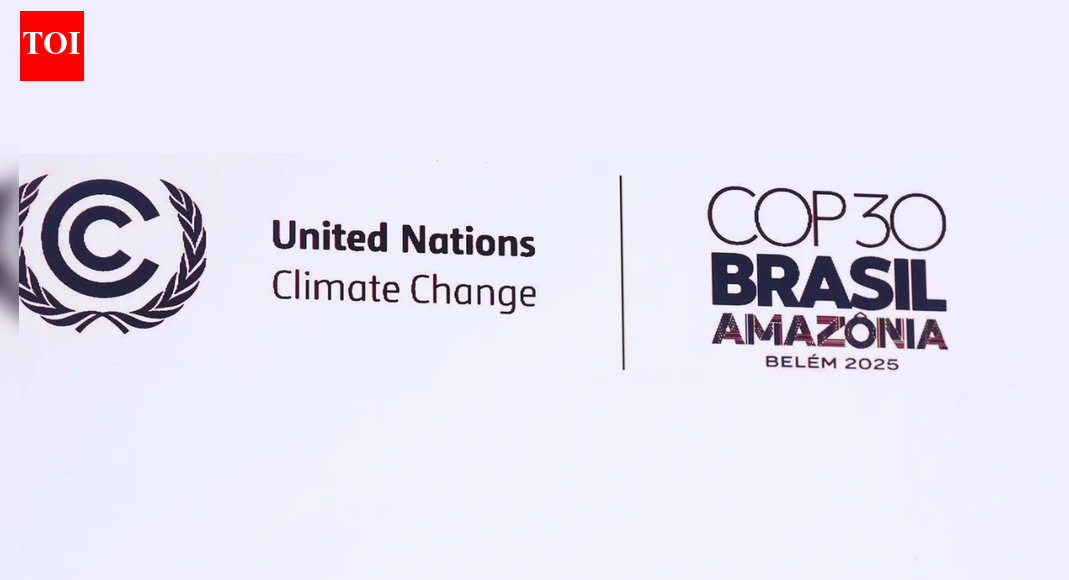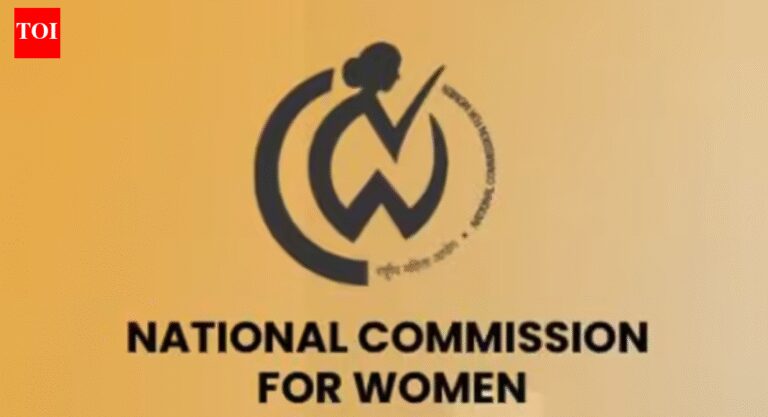
NEW DELHI: The 30th session of the UN climate conference (COP30) concluded in Belem, Brazil with a compromised deal as countries agreed to triple adaptation finance (funds to assist developing countries to tackle impacts of climate change) as part of the summit agreement – called global ‘Mutirao’ decision – but could not reach consensus on a roadmap to transitioning away from fossil fuels and stop deforestation. An informal announcement on these two issues was, however, a saving grace as it will keep the focus on climate-damaging fossil fuels intact during future COPs.Since many countries had been pitching for agreements on phasing out use of fossil fuels (oil, gas and coal) and halting deforestation, the Brazilian COP30 presidency announced two roadmaps – one on to transitioning away from fossil fuels in just, orderly and equitable manner, and the other on halting and reverting deforestation. Though these announcements are not part of the formal UN process, it’s considered a step closer to ending the fossil fuel era and protecting forests.The COP30 president, Andre Correa do Lago, had to announce it in his own capacity to show some progress at Belem as around 90 countries backed both the decisions. Since there was no consensus over it among 194 participating countries, it could not become part of the formal decisions of the COP30.“It is my duty to recognize some very important discussions that took place in Belem and that need to continue during the Brazilian Presidency until the next COP, even if they are not reflected in these texts we just approved. We know some of you had greater ambitions for some of the issues at hand… I will try not to disappoint you during my presidency,” said do Lago.The agreements reached as ‘Mutirao’ deal had, however, its share of objections with certain countries including Colombia, Uruguay and Chile highlighting the procedural lapse while the bunch of decision texts were being gavelled. It led to brief suspension of the closing plenary. The matter could be resolved when it was agreed that the works on global goal on adaptation (GGA) and mitigation work programme will continue during the COP inter-sessional round in Bonn next year.“While far from what’s needed, the outcome in Belem is meaningful progress. The Paris Agreement is working, the transition away from fossil fuels agreed in Dubai is accelerating. Despite the efforts of major oil producing states to slow down the green transition, multilateralism continues to support the interests of the whole world in tackling the climate crisis,” said Jennifer Morgan, former German climate envoy.The tripling of adaptation finance means the funds needed for adaptation in developing countries will be increased to $120 billion annually by 2035 from the current level ($40 billion annually) within the overall climate finance of $300 billion annually by 2035, which was agreed at COP29 in Baku, Azerbaijan last year. Countries at COP30 also agreed on a two year work programme for the delivery of climate finance including the $300 billion annually as promised in 2024. “COP30 delivered breakthroughs to triple adaptation finance, protect the world’s forests and elevate the voices of Indigenous people like never before. This shows that even against a challenging geopolitical backdrop, international climate cooperation can still deliver results. But many will leave Belém disappointed that negotiators couldn’t agree to develop a roadmap to transition away from fossil fuels,” said Ani Dasgupta, President & CEO, World Resources Institute.“This deal isn’t perfect and is far from what science requires. But at a time when multilateralism is being tested, it is significant that countries continue to move forward together. While very disappointingly countries failed to agree on a collective roadmap to phase out fossil fuels or end deforestation, the global direction of travel is clear. And we saw real steps in establishing a just transition mechanism, agreeing on a gender action plan, and calling for triple adaptation finance for vulnerable nations by 2035,” said Mary Robinson, former President of Ireland and member of the Elders, an independent group of global leaders working for peace, justice, human rights and a sustainable planet.Brazil during the summit also launched a new Integrated Forum on Climate Change and Trade – the first of its kind initiative to coordinate climate-aligned trade policy and create a “safe space for dialogue” among trade and climate officials.Reacting to the overall outcome of COP30, UN climate change executive secretary Simon Stiell said, “We knew this COP would take place in stormy political waters. Denial, division and geopolitics has dealt international cooperation some heavy blows this year. But friends. COP30 showed that climate cooperation is alive and kicking, keeping humanity in the fight for a livable planet, with a firm resolve to keep 1.5 degree Celsius (of global average temperature rise above 1850-1900 levels) within reach.“He said, “I’m not saying we’re winning the climate fight. But we are undeniably still in it, and we are fighting back. Here in Belem, nations chose solidarity, science, and economic common sense… 194 countries have said in one voice that ‘the Paris Agreement is working’, and resolved to make it go further and faster.”Countries at COP30 agreed to launch the ‘Global Implementation Accelerator,’ a two-year process led by the COP30 and COP31 Presidencies to close the gap between current national climate plans and what is required to keep 1.5 degree C of temperature rise within reach. They also agreed to develop a just transition mechanism to enhance international cooperation, technical assistance, capacity-building and knowledge sharing for an equitabletransition.







